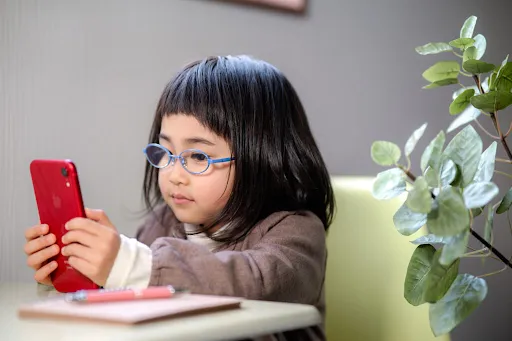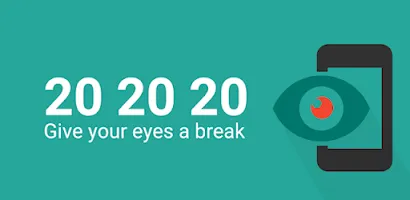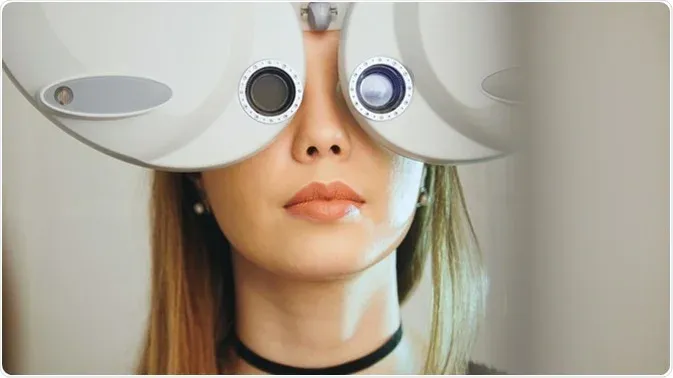Lifestyle Shifts and Myopia in Kids
How Lifestyle Changes Can Impact Myopia in Children?
FSDAVCFEBFEVSDDVFSD
FSDAVCFEBFEVSDDVFSD
FSDAVCFEBFEVSDDVFSD
Enhancing Child Vision Health
Myopia, also known as short-sightedness, is becoming increasingly common among children. This condition results in distant objects appearing blurry, which can interfere with daily activities and academic performance. Addressing myopia through lifestyle changes is an effective approach to managing and potentially slowing its progression.
By implementing simple adjustments such as encouraging more outdoor playtime and reducing screen exposure, parents can make a significant difference in their child's eye health. This will provide a comprehensive overview of how various lifestyle changes can impact myopia in children, offering practical tips and insights to help parents support their child's vision health effectively.
Myopia, also known as short-sightedness, is becoming increasingly common among children. This condition results in distant objects appearing blurry, which can interfere with daily activities and academic performance. Addressing myopia through lifestyle changes is an effective approach to managing and potentially slowing its progression.

By implementing simple adjustments such as encouraging more outdoor playtime and reducing screen exposure, parents can make a significant difference in their child's eye health. This will provide a comprehensive overview of how various lifestyle changes can impact myopia in children, offering practical tips and insights to help parents support their child's vision health effectively.

What is the impact of Myopia?
The impact of myopia on daily life and learning is substantial. Children with uncorrected myopia may struggle academically due to difficulties seeing the board or reading from a distance. This visual impairment can lead them to avoid activities that require clear distance vision, such as sports and outdoor games, potentially affecting their social and physical development.
Addressing myopia progression through lifestyle changes is essential. Increasing outdoor activities has been shown to be effective in myopia prevention, as natural light and focusing on distant objects can help reduce eye strain. Additionally, reducing screen time can mitigate the risk of myopia progression, as prolonged close-up activities can exacerbate the condition. Promoting healthy eye habits, such as regular breaks from screens and ensuring proper lighting, along with regular vision care check-ups, is crucial in managing and preventing myopia in children. These strategies can significantly enhance children's eye health and overall well-being.
Lifestyle Adjustments to Manage Myopia
Adjusting daily habits can play a significant role in managing myopia in children. Numerous studies highlight the positive impact of lifestyle changes on slowing down myopia progression. One key adjustment is increasing the time children spend on outdoor activities. Exposure to natural light has been found to help regulate eye growth, preventing the eye from becoming too elongated—a major factor in myopia.
Experts recommend that children spend at least two hours outside each day to reap these benefits. Additionally, reducing screen time and close-up work is crucial. Excessive use of digital devices and prolonged near work can strain the eyes, exacerbating myopia. Implementing regular breaks during screen use and encouraging activities that involve looking at distant objects can alleviate eye strain and help manage myopia. By making these simple yet effective lifestyle adjustments, parents can significantly contribute to their children's eye health and overall well-being.
Tips for a Myopia-Friendly Lifestyle

Making lifestyle adjustments can significantly help in managing myopia in children. Encouraging children to spend more time outdoors is one of the most effective strategies. Research indicates that natural light exposure helps regulate eye growth, which can slow down myopia progression.
Experts suggest that children should spend at least two hours outdoors daily to benefit from natural light. Limiting screen time is another vital change. Excessive use of digital devices and prolonged near work can strain the eyes, worsening myopia.

For example, set specific time limits for device use and encourage children to take regular breaks. The 20-20-20 rule is helpful: every 20 minutes, look at something 20 feet away for at least 20 seconds. Creating a healthy visual environment at home is also important. Ensure that children have adequate lighting for reading and studying to avoid eye strain. An ergonomic setup for computer use, including proper chair and screen height, can also support better eye health
Dietary Guidelines for Eye Health
A balanced diet plays an important role in supporting children's eye health and can aid in myopia management. Certain vitamins and nutrients are particularly beneficial for maintaining good vision. Foods rich in Vitamin A, such as carrots, sweet potatoes, and leafy greens, are essential for eye health.
Vitamin A helps in maintaining a clear cornea and is a component of rhodopsin, a protein in the eyes that allows for low-light vision. Vitamin C, found in citrus fruits, strawberries, and bell peppers, helps protect the eyes from damage caused by free radicals. It is an antioxidant that can prevent or delay certain eye conditions like cataracts and age-related macular degeneration, providing long-term benefits for vision health. Omega-3 fatty acids, present in fish like salmon and tuna, as well as in flaxseeds and walnuts, contribute to overall eye health and can help reduce the risk of eye diseases. These healthy fats play a crucial role in retinal function and visual development, and they have anti-inflammatory properties that can benefit conditions like dry eye syndrome.
Incorporating a variety of nutrient-dense foods into your child's diet can help ensure they receive the essential vitamins and minerals needed for optimal eye health. Encourage the consumption of colorful fruits and vegetables, lean proteins, and whole grains to provide a well-rounded diet. Additionally, staying hydrated by drinking plenty of water is important for maintaining healthy eyes and preventing dryness. By following these dietary guidelines, parents can support their children's vision health and contribute to the prevention and management of myopia.
The Importance of Routine Eye Exams
Regular eye exams are a vital component of children's vision care, playing a crucial role in maintaining eye health and managing conditions like myopia. These check-ups allow for the early detection of myopia and other vision problems, enabling timely intervention and effective management. Eye exams can identify vision changes that might not be noticeable in daily activities, ensuring that any progression of myopia is promptly addressed. Eye care professionals recommend that children have their eyes examined at least once a year.
During these exams, optometrists can guide myopia management and suggest appropriate corrective measures, such as glasses or contact lenses. Early detection through routine eye exams allows for the prescription of corrective lenses that can significantly improve a child's vision and quality of life.
Regular eye exams are a vital component of children's vision care, playing a crucial role in maintaining eye health and managing conditions like myopia. These check-ups allow for the early detection of myopia and other vision problems, enabling timely intervention and effective management. Eye exams can identify vision changes that might not be noticeable in daily activities, ensuring that any progression of myopia is promptly addressed. Eye care professionals recommend that children have their eyes examined at least once a year.


Additionally, optometrists can recommend specialized lenses or treatments, such as multifocal or orthokeratology lenses, designed to slow myopia progression. These personalized solutions can tailor to each child's unique needs, ensuring comprehensive care.
Regular monitoring through eye exams also helps in adjusting lifestyle changes as needed to support children's eye health. For example, if a child is found to have worsening myopia, parents can implement strategies to reduce screen time and increase outdoor activities, both of which have been shown to help manage myopia progression. Furthermore, optometrists can provide guidance on proper ergonomic practices for reading and screen use, such as maintaining an appropriate distance from screens and using adequate lighting. By combining medical advice with practical lifestyle adjustments, parents can create a supportive environment that promotes optimal eye health for their children.
During these exams, optometrists can guide myopia management and suggest appropriate corrective measures, such as glasses or contact lenses. Early detection through routine eye exams allows for the prescription of corrective lenses that can significantly improve a child's vision and quality of life. Additionally, optometrists can recommend specialized lenses or treatments, such as multifocal or orthokeratology lenses, designed to slow myopia progression. These personalized solutions can tailor to each child's unique needs, ensuring comprehensive care.
Regular monitoring through eye exams also helps in adjusting lifestyle changes as needed to support children's eye health. For example, if a child is found to have worsening myopia, parents can implement strategies to reduce screen time and increase outdoor activities, both of which have been shown to help manage myopia progression. Furthermore, optometrists can provide guidance on proper ergonomic practices for reading and screen use, such as maintaining an appropriate distance from screens and using adequate lighting. By combining medical advice with practical lifestyle adjustments, parents can create a supportive environment that promotes optimal eye health for their children.
Supporting Your Child's Eye Health
Parents play a vital role in promoting healthy eye habits and supporting myopia prevention in their children. Encouraging outdoor activities and limiting screen time are effective strategies for managing myopia. Increased exposure to natural light during outdoor activities can help regulate eye growth, reducing the risk of myopia progression.
By setting a good example, reducing their own screen time, and participating in outdoor activities, parents can motivate their children to adopt similar habits. Creating a balanced daily routine that includes physical activity, limited screen exposure, and proper lighting for reading and studying is crucial. This balanced approach ensures that children have enough time for outdoor play while minimizing the strain caused by prolonged screen use. Proper lighting is essential to avoid eye strain during close-up tasks like reading and homework.
Educating children about the importance of eye health and involving them in eye-friendly activities can make a significant difference. Simple activities such as taking regular breaks during screen use, following the 20-20-20 rule (every 20 minutes, looking at something 20 feet away for 20 seconds), and practicing eye exercises can help maintain healthy vision.
Parents play a vital role in promoting healthy eye habits and supporting myopia prevention in their children. Encouraging outdoor activities and limiting screen time are effective strategies for managing myopia. Increased exposure to natural light during outdoor activities can help regulate eye growth, reducing the risk of myopia progression.
By setting a good example, reducing their own screen time, and participating in outdoor activities, parents can motivate their children to adopt similar habits. Creating a balanced daily routine that includes physical activity, limited screen exposure, and proper lighting for reading and studying is crucial. This balanced approach ensures that children have enough time for outdoor play while minimizing the strain caused by prolonged screen use. Proper lighting is essential to avoid eye strain during close-up tasks like reading and homework.
Educating children about the importance of eye health and involving them in eye-friendly activities can make a significant difference. Simple activities such as taking regular breaks during screen use, following the 20-20-20 rule (every 20 minutes, looking at something 20 feet away for 20 seconds), and practicing eye exercises can help maintain healthy vision.
Conclusion
Simple lifestyle changes such as increasing outdoor activities, reducing screen time, and maintaining a balanced diet rich in essential nutrients can significantly impact myopia in children. Proactive measures, including routine eye exams and fostering healthy eye habits, are important in managing myopia progression and supporting children's vision health.
Parents are encouraged to implement these strategies to ensure their children's long-term eye health, promoting not only better vision but also overall well-being. By making these adjustments, parents can help prevent myopia from worsening and contribute to their children's healthy development.

Contact Info
Hours of Operation
Mon - Fri | 9:00 AM - 5:00 PM
Sat - Sun | Closed
Holiday Hours: We are closed for the following holidays: New Years Day, Memorial Day, Independence Day, Labor Day, Thanksgiving Day, Christmas Day
© 2026 Kleinwood Vision. All rights Reserved.


